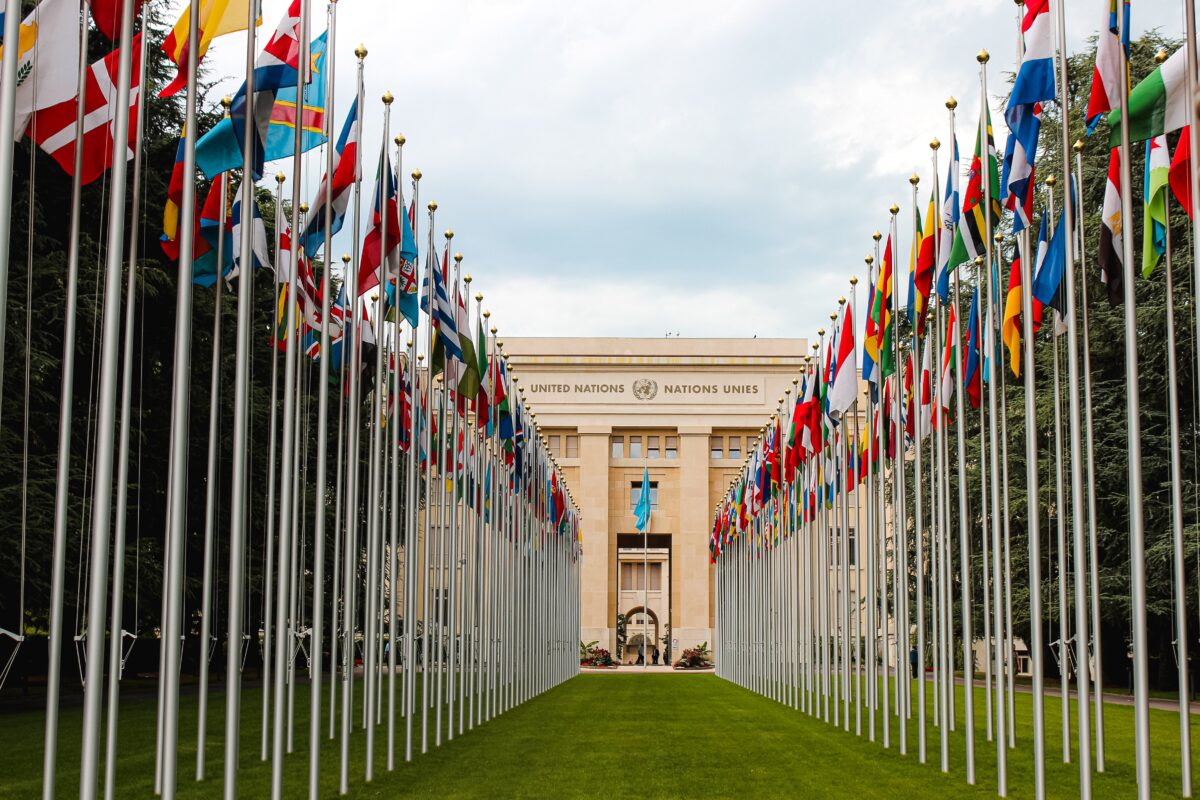By Arjun Limbu Wanem in Kathmandu, Nepal
When it comes to solving humanitarian crises, there is no such thing as a silver bullet. However, United Nations peacekeeping missions have been proven over the years to be one of the best methods of resolving conflict, stabilizing chaotic political situations, and reducing human suffering. At the UN, peacekeepers (often referred to as ‘Blue Helmets’) work under three basic principles – consent, impartiality, and non-use of force except in self-defense and defense of the mandate.
They maintain peace and security, and perform a wide range of tasks – including but not limited to protecting civilians, disarmament, promoting the causes of human rights and peace, facilitating political solutions to conflict, and delivering operational support. Peacekeepers provide medical assistance to civilians and animals, and they also teach important skills such as English and IT.
At the time of writing, twelve peacekeeping missions are underway – seven in Africa, three in West Asia, one in South Asia, and one in Europe. UN peacekeepers can be expected to live under hostile environmental conditions such as droughts and floods. Illness caused by harsh environmental conditions, violent conflict, accidents, and sometimes landmine explosions have seen peacekeepers lose their lives. As of 31 January 2021, UN fatalities data has recorded the death of 4065 peacekeepers. These peacekeepers brought relief to millions facing starvation, assisted in the safe return of refugees to their homeland, helped to stop large-scale killings in the majority of missions, and provided massive humanitarian aid under challenging conditions – not least during the COVID-19 pandemic. According to the latest available data, 81,932 active peacekeepers are active today.
The UN is currently spending billions of dollars on these missions annually. Despite their success, there have been notable catastrophes involving UN peacekeepers. In 2020, 27 cases of abuse and sexual exploitation were reported against UN military personnel in the Central African Republic during a UN mission. Occasionally, peacekeepers have been found guilty of financial corruption whilst on-duty. Peacekeepers failed to prevent the Tutis massacre in Rwanda after the UN headquarters in New York had ignored the reports of a genocide plan. They were widely denounced after failing to prevent a frenzied massacre in Bosnia and the slaughter by Hutu rebels in Congo. In Somalia, a debacle was formed during a humanitarian operation when the clash between the US-led troops and a powerful warlord group turned into a bloody conflict killing hundreds of people.
While You’re Here…
Why not take a moment to subscribe to The International’s free monthly newsletter? It takes seconds to sign up, and you’ll stay up to date with the stories shaping our world at a pace that won’t overwhelm.
Opportunities to Improve
At times, internal politics within the UN security council can lead to disastrous consequences. Fundamentally, the UN does not have ultimate power over its peacekeepers. The majority of them belong to the developing nations in which they are stationed, rather than the powerful countries that provide finance to their operations. Harsh environmental and geographical conditions, together with flawed training programmes, are unfortunately undermining peacekeepers. These soldiers and volunteers tend to think of themselves as monitors of peace, not enforcers. They ultimately take orders from their own country’s defense ministry, not the UN commanders on the ground.
Coordinated improvements are needed. Powerful countries should get out of the mindset that they are sending citizens of developing countries to fight and die, and send their forces for peacekeeping missions instead. In order to prevent internal UN politics from undermining peacekeepers, control of missions should entirely give to UN Commanders. Hard and situation-oriented training should be provided to every Blue Helmet to ensure that they are ready to meet challenges and respond quickly, effectively, and transparently. UN member states need to ramp up women’s participation in their military, which ultimately bolsters the UN peacekeepers’ gender gap. Peacekeepers, of course, should strictly abide by UN laws, regulations, and humanitarian ethics whilst on-duty.
The peacekeeping operation exists to provide a peaceful settlement to disputes. To that end, the UN’s priority should be on championing political stability and reducing humanitarian crises rather than skirmishing with warlord groups. World leaders must expand their support to the UN peacekeeping missions by deploying their forces and always remaining committed to working alongside the United Nations.
Violent disputes do not happen in a vacuum. All UN member states share this world, and we all stand to lose when order falls apart. There is no easy ticket to a safe, peaceful, and prosperous world. But the best way to get there is by working together. That’s why all countries should commit to supporting and improving the UN Blue Helmets.
Arjun Limbu Wanem is studying International Relations and Diplomacy at Tribhuwan University. You can follow Arjun on Twitter here.

